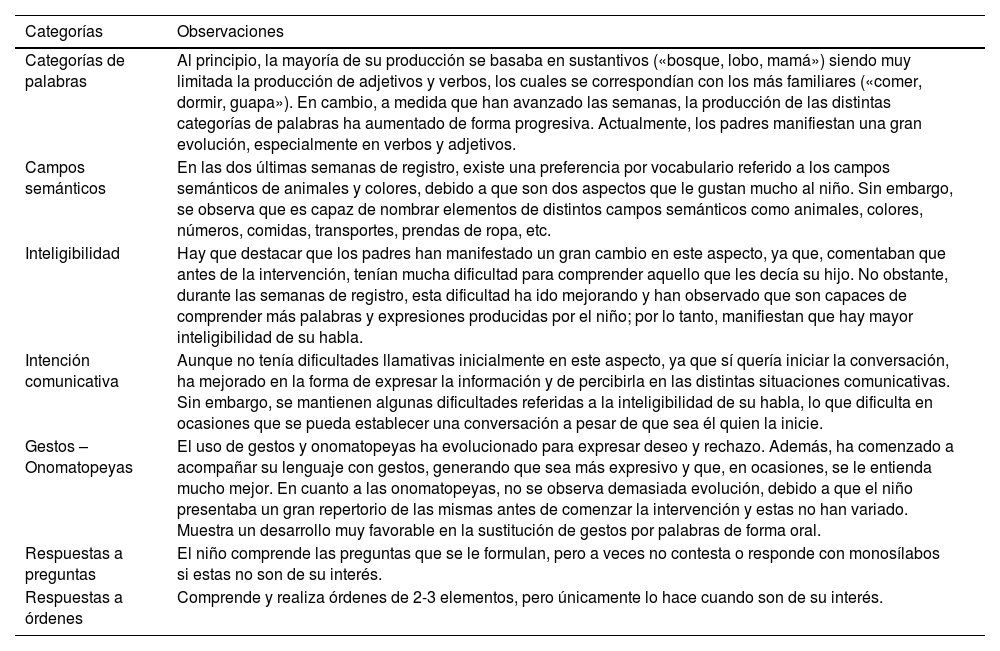Las dificultades lingüísticas en niños pequeños son cada vez más frecuentes. En la actualidad se tiende a intervenir tempranamente incluyendo al niño y a su entorno. El presente trabajo tiene como objetivo describir y analizar el desarrollo de la intervención logopédica realizada con un niño con dificultades en la adquisición del lenguaje y con sus padres.
Material y métodoMetodología cualitativa para analizar la intervención a través de tareas proporcionadas a los padres. Durante ocho semanas los padres registraron la frecuencia y el grado de dificultad al realizar dichas tareas y la evolución lingüística del niño.
ResultadosLos padres son constantes en la realización de las tareas, valorándolas más fáciles de manera progresiva. Además, la evolución lingüística del niño es favorable.
ConclusionesCuando la intervención involucra activamente a los padres se puede favorecer su desarrollo, la generalización del trabajo en el entorno del niño y su desarrollo lingüístico.
Language difficulties in young children are becoming more and more frequent. Nowadays, there is a tendency to intervene early, including the child and his or her environment. The aim of this paper is to describe and analyse the development of the speech therapy intervention carried out with a child with language acquisition difficulties and his parents.
MethodQualitative methodology to analyse the intervention through tasks given to the parents. For eight weeks, the parents recorded the frequency and degree of difficulty in carrying out the tasks and the child's linguistic evolution.
ResultsParents are consistent in performing the tasks, rating them as progressively easier. In addition, the child's linguistic evolution is favourable.
ConclusionsWhen the intervention actively involves the parents, the development of the intervention, the generalisation of the work in the child's environment and the child's linguistic development can be favoured.











